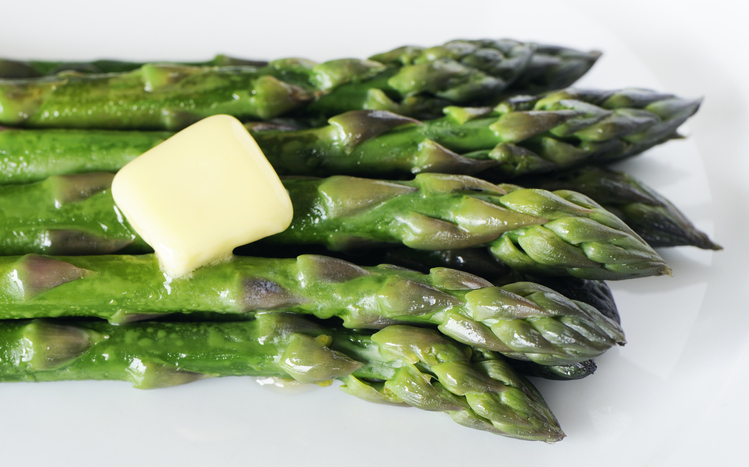Which is Better for Your Heart – Butter or Margarine? Or Neither?

By Joy Stephenson-Laws, J.D., Founder
In theory, it should be relatively easy for doctors and nutritionists to decide once and for all whether margarine or butter is better – or at least which is less harmful – to our hearts. Analyze their individual compositions and the one with the best heart-health profile should win.
Unfortunately, things are never usually quite that clear cut when it comes to diet and nutrition. And complicating matters even more, what if both are equally unhealthy for our hearts but for different reasons? If that is the case, are we to be consigned to dry toast and flavorless cooking in the name of health?
The challenge is that both butter and margarine have their own nutritional and health benefits as well as their drawbacks that we need to consider. Since each person is different, butter may be the best option – from a healthy heart standpoint – for one person while margarine may be the better option for another. And having a wide variety of butter and margarine alternatives, each touting their specific health advantages, in the market competing for our attention does not make the decision any easier.
As a health-conscious consumer, how do you really know which product is best for you and your family? Looking at each type of product may help you decide.
But let’s first look at what concerns healthcare professionals about these “spreads,” which is the role they play in helping us manage our cholesterol levels. Cholesterol is a very necessary waxy, fat-like substance that serves as an important building block in every single one of our cells. For example, we all need cholesterol to make hormones and vitamin D.
And our organs, mostly the liver, produce a lot of the cholesterol we need – about 80%. Only about 20% comes from the food we eat. If we have too much cholesterol circulating in our blood, it can create sticky deposits (called plaque) along the artery walls. Plaque can eventually narrow or block the flow of blood to the brain, heart and other organs. Blood cells that get caught on the plaque can form clots which, if they break loose from the artery wall, can cause a stroke, heart attack or other organ deficiency.
This is where the difference between ‘good’ and ‘bad’ cholesterol factors in. Reportedly, the bad cholesterol causes plaque build-ups in the arteries, and the good cholesterol carries fat away from the heart. This helps to reduce the build-up of plaque and lower the risk of cardiovascular disease.
So, the idea is to do what we can – and diet plays a key role in this – to reduce the “bad” and increase the “good” cholesterol.

Butter is a dairy product made from animal milk (the most familiar being cow’s milk). Per tablespoon, it has 100 calories, 11 grams of fat, 31 mg of cholesterol and 7 grams of saturated fat. So, it is not a low-cal, low-fat option. The level of saturated fat, which is about half of the suggested daily amount for an average person, can increase your cholesterol levels and the calories can expand your waistline. To give you an idea of how these calories can add up, if you were to add one serving of butter every day to your diet, over the course of a year you could put on an additional 10 pounds of weight.
On the other hand, butter has a lot going for it in terms of potential health benefits. Among these are that it is high in calcium, which is great for your bones and low in carbohydrates. It also has a lot of beta-carotene, which could promote eye health as well as reduce your risk for prostate and lung cancer. Last, but not least, butter also has vitamin E which helps promote healthy skin. Other nutrients found in butter include vitamin A, vitamin K and vitamin B12.
Butter also has butyrate which has been associated with better digestive health since it can reduce intestinal inflammation and even help better manage irritable bowel syndrome. And research suggests the conjugated linoleic acid found in butter could help reduce the growth of certain cancers.
While butter is made from animal fat, margarine is made from plant-based fat. Given that plant-based foods are better for us than animal-based foods, you would think that margarine would beat butter hands-down when it comes to protecting our hearts. The problem, however, is that margarines often contain other ingredients or undergo manufacturing processes which can quickly cancel out their health benefits. Margarine has about the same calorie count as butter.
One of the biggest health risks of margarine are the fats and processes that are added to make it solid. And the general rule of thumb is that the more solid the margarine, the more trans fats it contains (trans fats are arguably the least healthy fats we can consume). These fats pack a double wallop in that they raise our bad cholesterol while lowering our good cholesterol. In addition to increasing our risk for heart disease, trans fats also increase our risk for developing type 2 diabetes.
While margarine may have a better fat profile than butter, it does not offer its nutritional benefits. It contains vitamin K, vitamin A, calcium and omega-3 fatty acid. Some brands of margarine are also fortified with plant sterol, which has been shown to reduce cholesterol.
The Health Pros and Cons of Alternatives
Your options for a spread for eating and cooking are not limited to traditional butter or margarine. In fact, as a trip to your supermarket will demonstrate, you can now choose not only from a wide variety of butters – salted, European, organic, sheep, goat and buffalo – but from an equally wide array of plant-based spreads as well. Some of these alternatives, such as spreadable or diet butters, have heart-healthy profiles that combine some of the benefits of butter and margarine in one product.
You can also consider not using either butter or margarine and opt instead for other spreads to accompany your foods (not for cooking them, however). These include hummus (made from chickpeas), low-fat Greek yogurt and mashed avocado. Some people like to use apple sauce for mashed bananas when they bake. One excellent option that can be both a “spread” substitute as well as used in cooking is olive oil, which is one of my personal favorites.
Having so many options is great since some health experts would argue that there is no real choice between butter and margarine since neither is really an ideal food for heart health.
How To Be Proactive
There are some things you can do to help make your spreads as heart healthy as possible. The first thing is to have your cholesterol, trans fats and other lipid levels checked. With this information, you can work with a competent healthcare practitioner to guide your decisions on the best spreads and cooking fats for you to use. Then consider doing the following:
- Avoid trans fats (an easy way to do this is to not purchase commercially baked goods as well as fast foods)
- Check labels of butter alternatives as well as margarines to make sure they have a healthier heart profile than traditional butter or margarine
- Purchase butter, margarine or alternatives that have the least amount of added ingredients and with no artificial preservatives
- Look for the American Heart Association “Heart Check Certification” on whatever spread you are considering purchasing
Enjoy your healthy life!
Disclaimer: This article is not intended to provide medical advice. Please consult with your doctor or another competent healthcare practitioner to get specific medical advice for your situation.
The pH professional health care team includes recognized experts from a variety of health care and related disciplines, including physicians, attorneys, nutritionists, nurses and certified fitness instructors. This team also includes the members of the pH Medical Advisory Board, which constantly monitors all pH programs, products and services. To learn more about the pH Medical Advisory Board, click here.







